Today we live in a society, which can not imagine life without expressing views on social media. Probably it does have certain advantages. Nevertheless, many participants of active discussions have already forgotten or do not even know about the developments, which unfolded in Armenia 5, 10 or 15 years ago.
To fill the gap Mediamax presents 5/10/15 project, which introduce developments in Armenia 5, 10 and 15 years ago.
• 15 YEARS AGO: MARCH 1-7, 2006
“Armenia pushes Azerbaijan to revise policy”
On March 1, President of Azerbaijan Ilham Aliyev said that “Armenia’s unconstructive stance at Karabakh peace talks pushes Azerbaijan to revise its policy.”
He noted that recently there were definite opportunities for the coordination of basic principles of the peace agreement.
“But, proving its unconstructiveness, Armenia does not show interest in coordinating these principles. Azerbaijan should think what to do,” Ilham Aliyev said.
Parties fail to agree on one key principle
On March 2, Armenian President Robert Kocharyan stated that “nothing tragic has happened” at the talks in Rambouillet on February 10-11, but “the parties failed to agree on one important principle.”
He expressed the opinion that the disappointment after Rambouillet was caused mainly by “exaggerated expectations”. According to Kocharyan, on the eve of Rambouillet meeting, “there was a psychological atmosphere - everyone was waiting for a culmination, but this did not happen.” “The state of the negotiation process definitely did not correspond to such expectations,” he stressed.
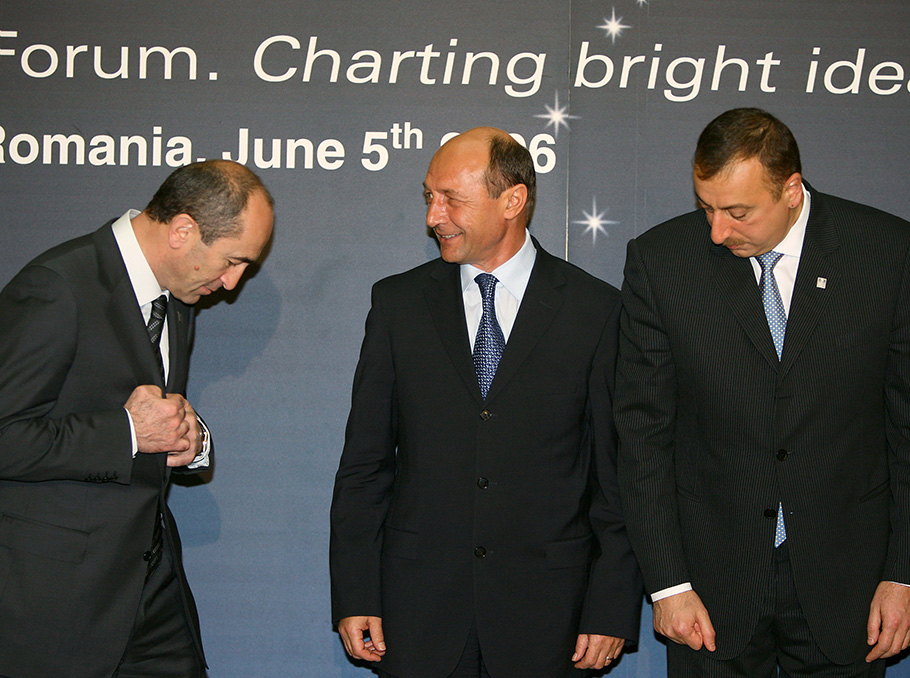 Robert Kocharyan and Ilham Aliyev in Bucharest in 2006
Robert Kocharyan and Ilham Aliyev in Bucharest in 2006Photo: REUTERS
Kocharyan said that the mediators were trying to come to agreement with the sides on the principles of the Karabakh settlement before the forthcoming July meeting of Group of Eight (G8) leaders in St. Petersburg.
“The mediators thought that if we manage to come to G8 meeting with coordinated settlement principles, it will be the best guarantee of maximal support to the realization of reached agreements by the international community - both from the point of view of security provision and in the context of economic assistance and post-conflict rehabilitation,” the President noted.
The Armenian President said that the negotiation format “possesses a big positive resource.”
“First, Yerevan better defends the interests of the Armenian side. The status of a negotiating country is extremely important, as it is much easier to ignore the interests of an unrecognized country. Secondly, being an active participant of negotiations and a subject responsible for their outcome, I have more possibilities to present the issue of Nagorno-Karabakh at all meetings and during all my foreign visits. The third advantage is that the involvement of the Armenian President brings Armenia’s responsibility for Nagorno-Karabakh to an absolutely different level – the whole potential of our country is directed to the resolution of this problem,” said Kocharyan.
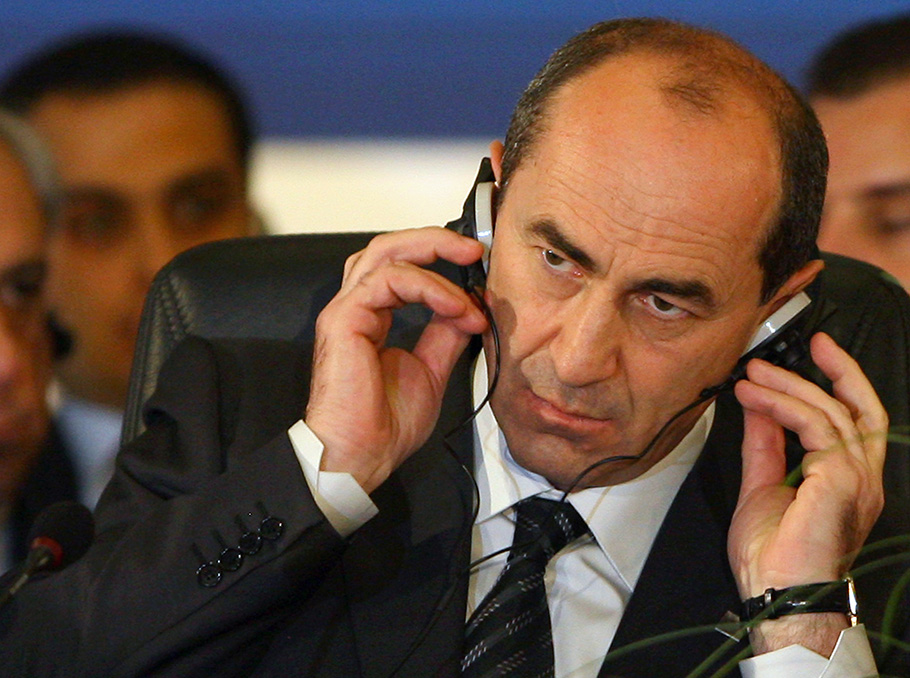
Photo: REUTERS
“I would like to say the following to Karabakhi people - you should start worrying only when the President of Armenia avoids taking responsibility for conducting negotiations. This will mean that either he does not believe in a favorable outcome or is unable to resolve the problem,” he concluded.
“Compliant with global standards by 2015”
On March 6, Armenian Defense Minister Serzh Sargsyan said that wWe have set a goal to have an army compliant with global standards by 2015.”
At the meeting with Russian journalists, he said that “sometimes the Russian media publishes unfriendly articles writing that Yerevan aims to create an army meeting NATO standards.” “These are different things,” Sargsyan noted.
Horrible, Bryza said
On March 7, U.S. Deputy Assistant Secretary of State for Europe and Eurasia Matthew Bryza described as “tragedy” the destruction of monuments on the territory of the Armenian cemetery in Nakhichevan.
At a briefing in Yerevan today, he said that “what has happened there is horrible.”
Matthew Bryza stated that “we have discussed this issue with representatives of Azeri authorities and they are aware of how seriously we treat this.”
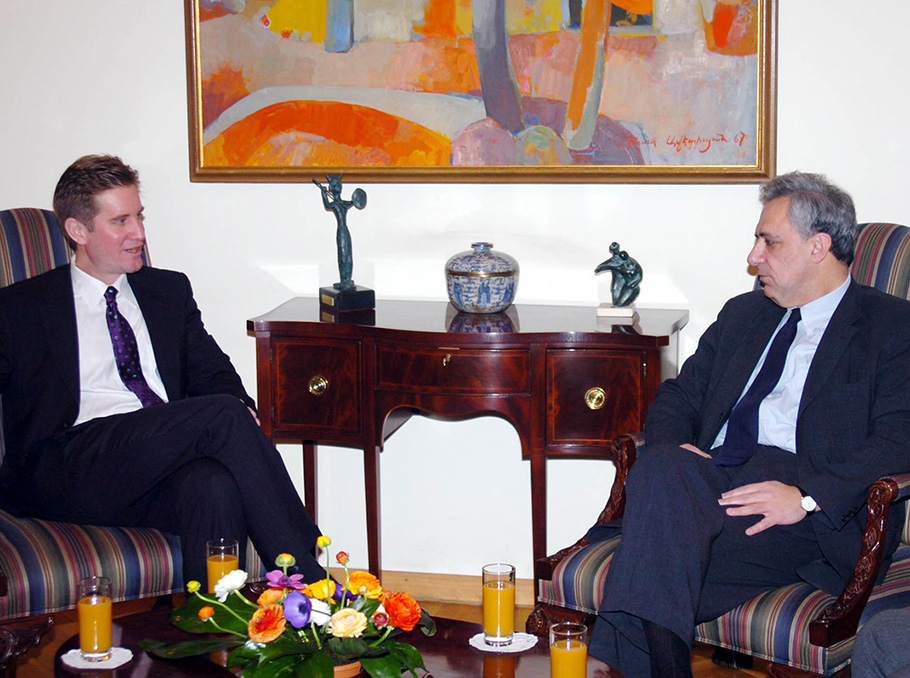 Matthew Bryza and Armenian FM Vartan Oskanyan on March 7, 2006
Matthew Bryza and Armenian FM Vartan Oskanyan on March 7, 2006Photo: Photolure
The U.S. official expressed the hope that those responsible for the destruction of Armenian monuments in Nakhichevan would be brought to account and spoke of the need to take measures directed to the provision of safety of the cultural heritage on the territory of all countries of the South Caucasus.
• 10 YEARS AGO: MARCH 1-7, 2011
Ter-Petrosyan’s demands
On March 1, first President of Armenia, leader of oppositional Armenian National Congress (ANC) Levon Ter-Petrosyan put forward 15 demands to the authorities, including resignation of Prime Minister Tigran Sargsyan and other leaders of ministries and departments.
Commenting on these demands, Deputy Speaker of the Armenian parliament Samvel Nikoyan stated that “the language of ultimatum is not based on the logics of solving the existing problems.”
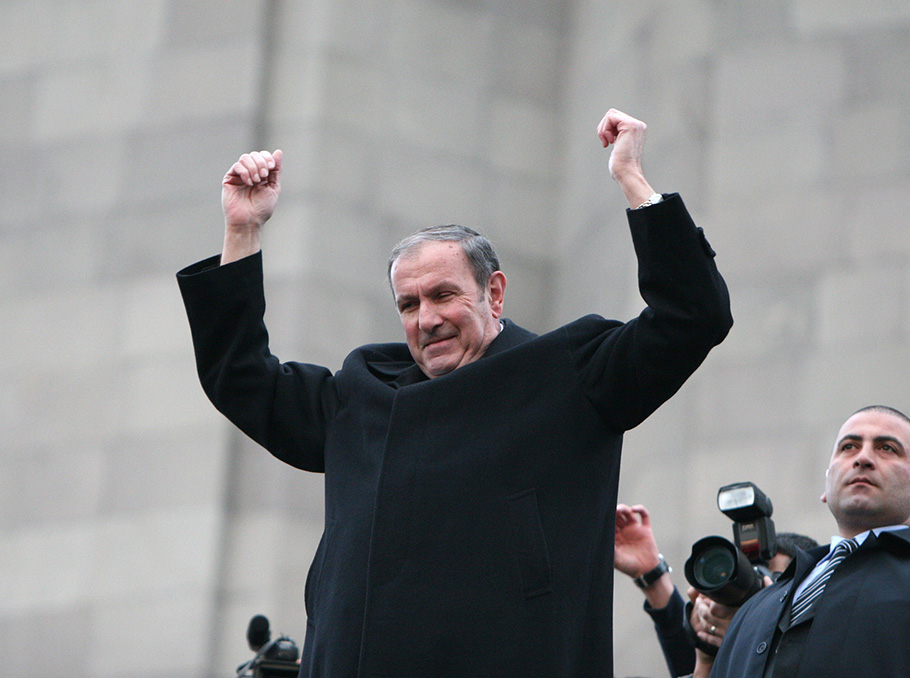 Levon Ter-Petrosyan on March 1, 2011
Levon Ter-Petrosyan on March 1, 2011Photo: Photolure
Samvel Nikoyan stated that “the language of ultimatum means conflict, but our bitter experience shows that neither the authorities nor the opposition want to again find themselves in an extreme situation.” He added that ANC never supported a constructive dialogue and constantly put forward ultimatums.
The Sochi statement
Ahead of the trilateral meeting of Armenian, Azerbaijani and Russian Presidents in Sochi on March 5, Armenian Foreign Minister Edward Nalbandian expressed the hope that “Azerbaijan will finally exhibit political will needed for the achievement of breakthrough in the negotiation process.”
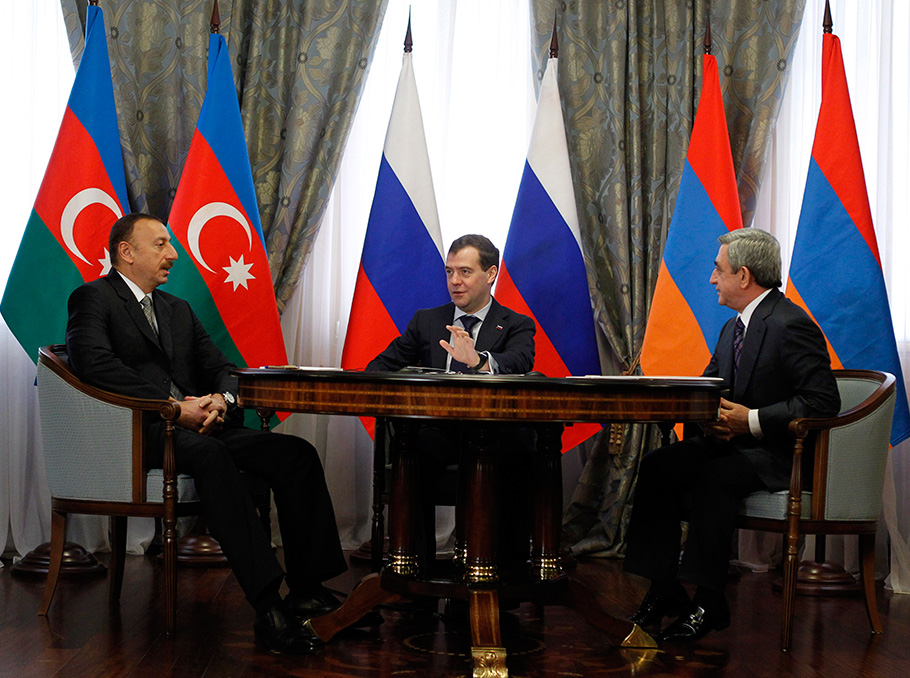 Serzh Sargsyan, Dmitry Medvedev and Ilham Aliyev in Sochi on March 5, 2011
Serzh Sargsyan, Dmitry Medvedev and Ilham Aliyev in Sochi on March 5, 2011Photo: REUTERS
Speaking at Diplomatic Academy in Vienna on March 2, Armenian FM said:
“Armenia speaks of peace, while Azerbaijan is propagandizing the war. We are trying to come to an agreement on the non-use of force, while Azerbaijan rejects this proposal and is proud of increasing its military budget. The international community urges to reinforce the cease-fire regime and withdraw the snipers from the line of contact, whereas Azerbaijan violates it hundreds of times every day and organizes provocations on the line of contact The international community declares that there is no alternative to the peaceful resolution of the conflict, whereas Azerbaijan declares that the peaceful settlement doesn’t necessarily mean non-use of force. We urge upon the international community and other countries to bolster the actions taken by the OSCE Minsk Group, assist to the continuation of the negotiation process in the existing framework in order to resolve the issue on the basis of mutual concessions. Azerbaijan urges everyone to take an anti-Armenian stance, speaking actually against the approaches of the OSCE Minsk Group Co-chairs, trying to transfer negotiations to other frameworks thus hampering the negotiation process.”
Commenting on the joint statement of Armenian, Azerbaijani and Russian Presidents, made on March 5, Director of “Caucasus” Institute Alexander Iskandaryan stated that “it should not be overestimated.”
“The fact that Baku managed to reach a statement on continuation of the peace process is already some success. However, the statement should not be overestimated, since such statements were made before as well, but this does not mean that they were complied with. One should not rule out the possibility that tomorrow, or in a month, Azerbaijani President will again make militaristic statements,” the expert stated.
Former Russian mediator Vladimir Kazimirov believed that in the statement, signed in Sochi, the Presidents of Russia and Armenia made a “concession to Aliyev’s whims”.
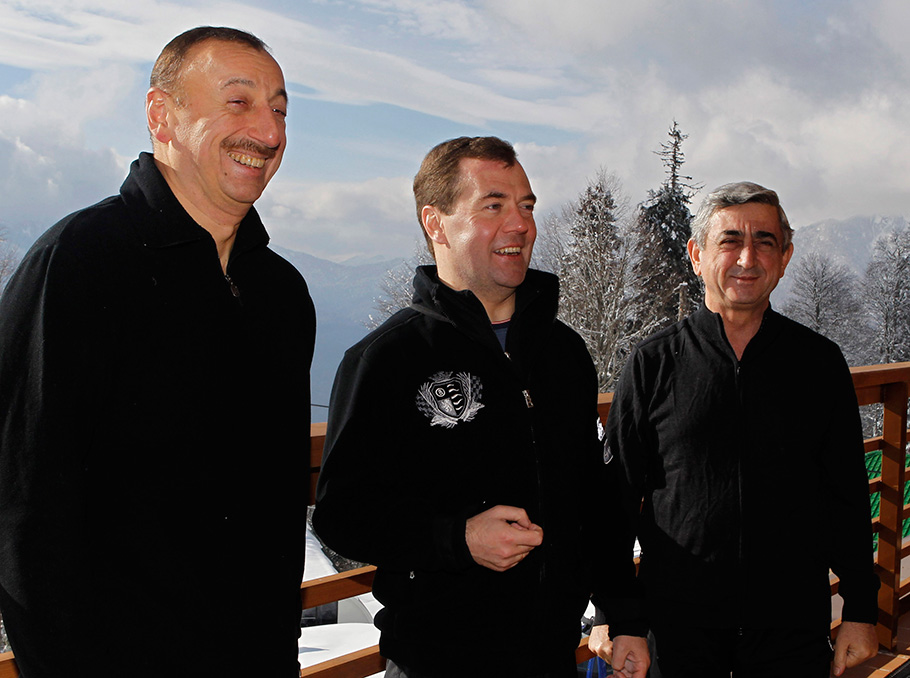 Serzh Sargsyan, Dmitry Medvedev and Ilham Aliyev in Sochi on March 5, 2011
Serzh Sargsyan, Dmitry Medvedev and Ilham Aliyev in Sochi on March 5, 2011Photo: REUTERS
“Of most significance in Sochi statement of the three Presidents can be considered the commitment “to strive to solve all disputable issues by means of peaceful measures”. In fact, this is the repetition of the main idea of Moscow Declaration of the three Presidents, made on November 2, 2008. However the word “strive” is an obvious concession to Aliyev’s whims. It is clear that Medvedev and Sargsyan could easily sign under that phrase without any “striving” and simply “decide”. But this partial wording is another obstacle on the way of Baku’s passion for threat blackmail, which finds wider reflection in many countries and international organizations,” noted former Russian Co-chair of OSCE Minsk Group.
• 5 YEARS AGO: MARCH 1-7, 2016
Seyran Ohanyan says new war is unlikely
On March 1, Armenian Defense Minister Seyran Ohanyan stated that current regional and international situation had no evidence that a full-scale war could unfold in the NK conflict zone.
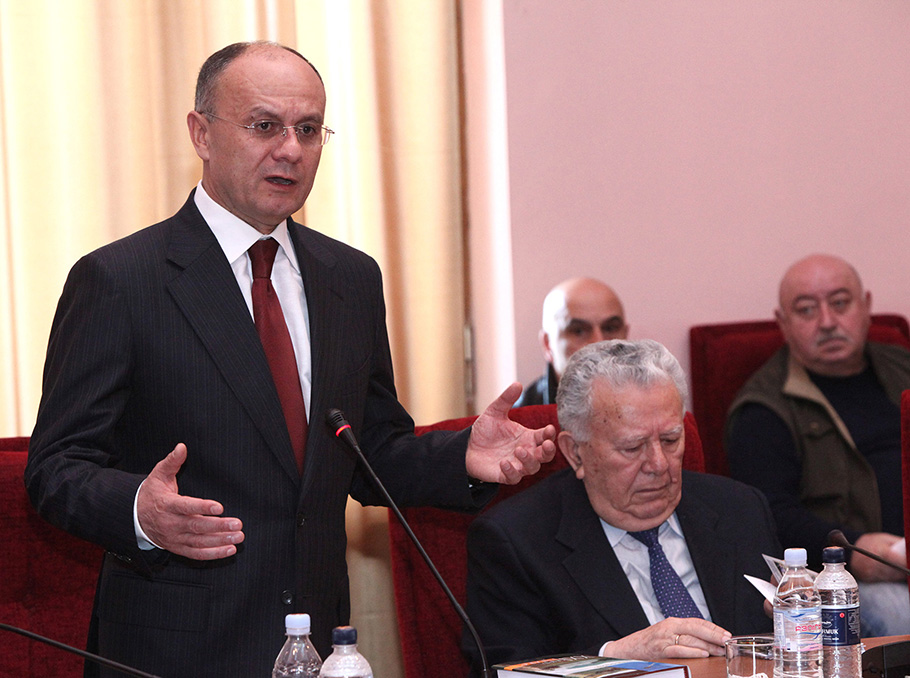 Seyran Ohanyan on March 1, 2016
Seyran Ohanyan on March 1, 2016Photo: Photolure
“The military and political leadership of Armenia is taking measures to resolve the conflict by peaceful means and with diplomatic methods, doing everything to contain the enemy,” said Ohanyan.
The April War of 2016 broke out in less than a month after this statement.
Ara Tadevosyan
















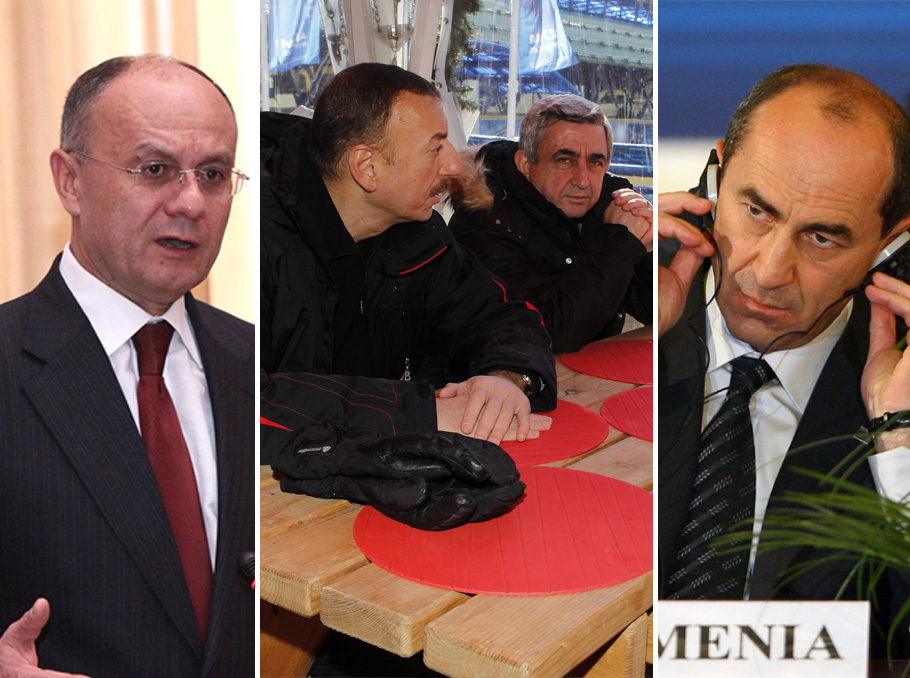

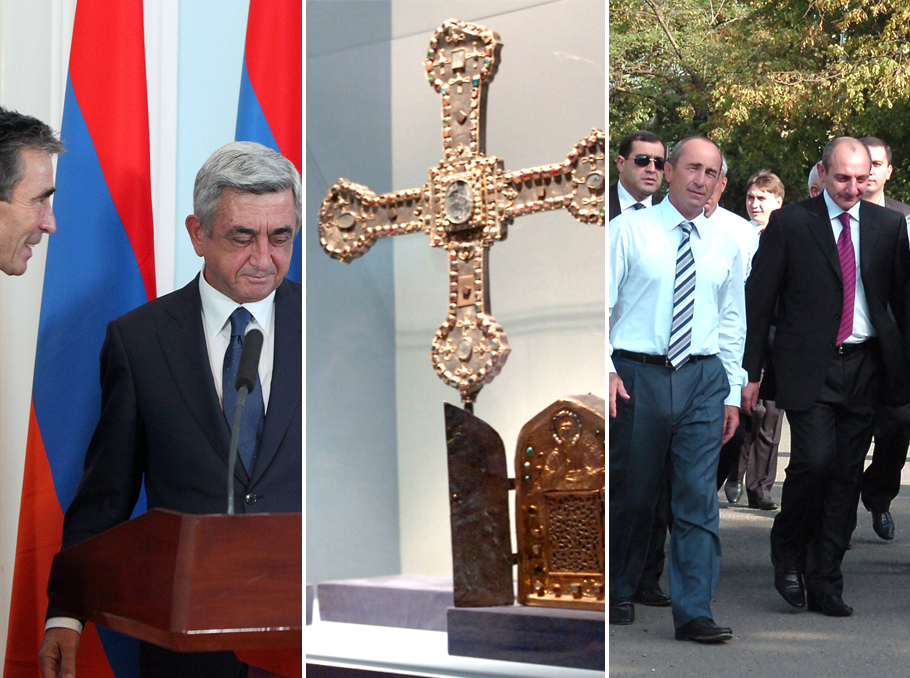
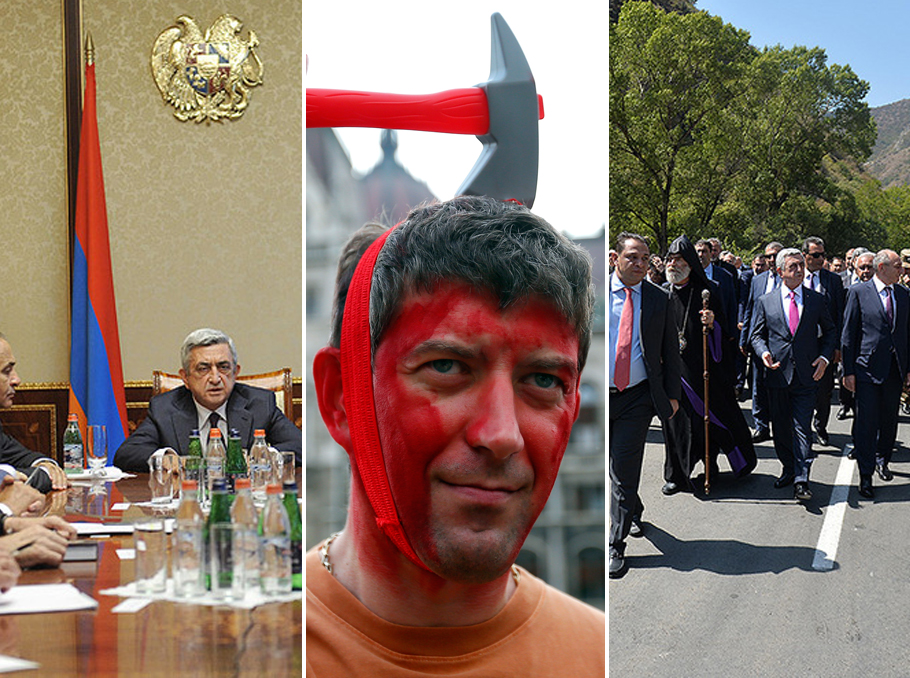
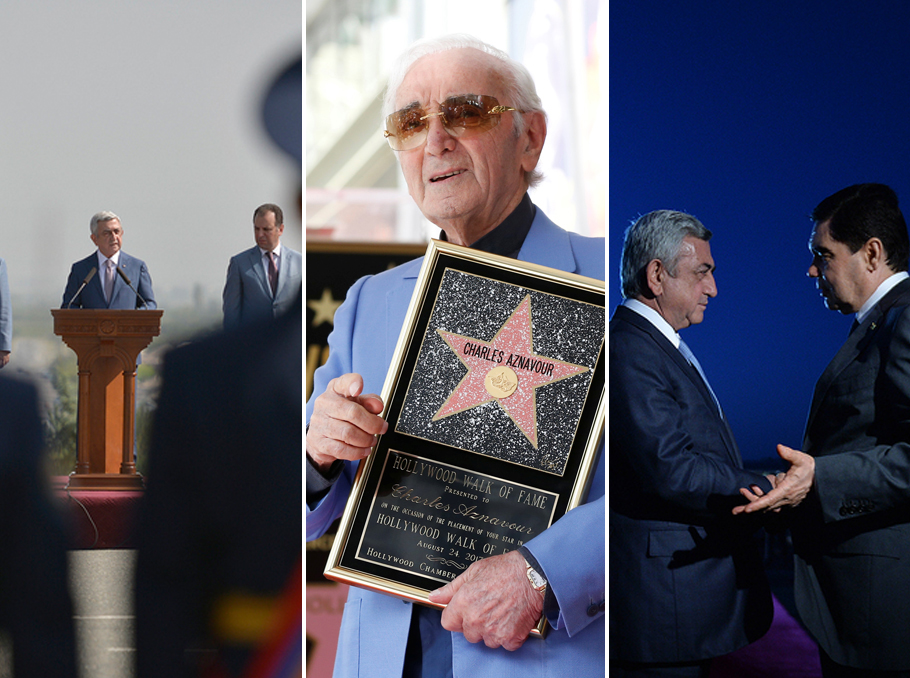
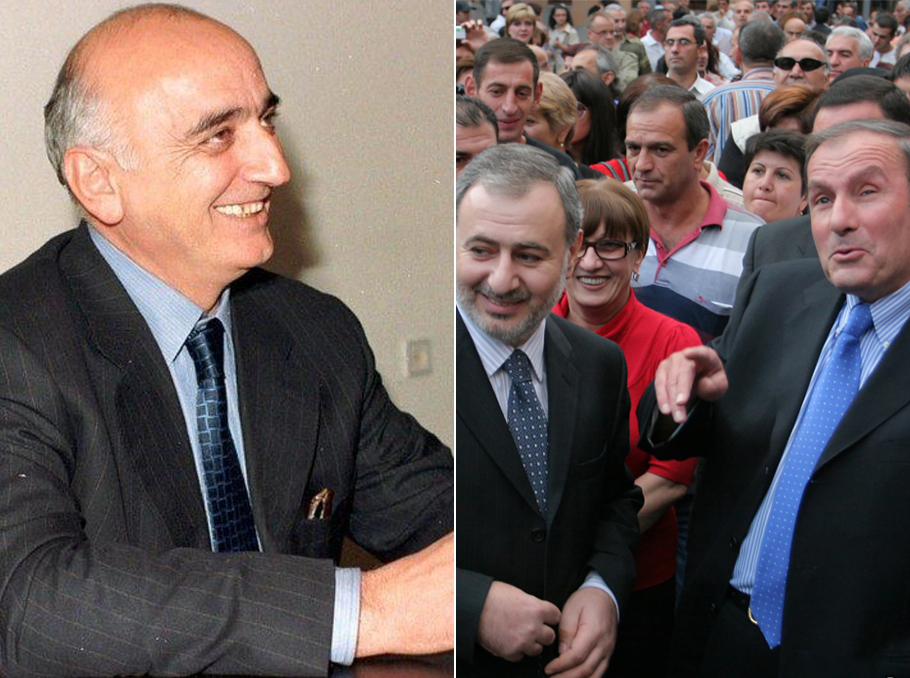
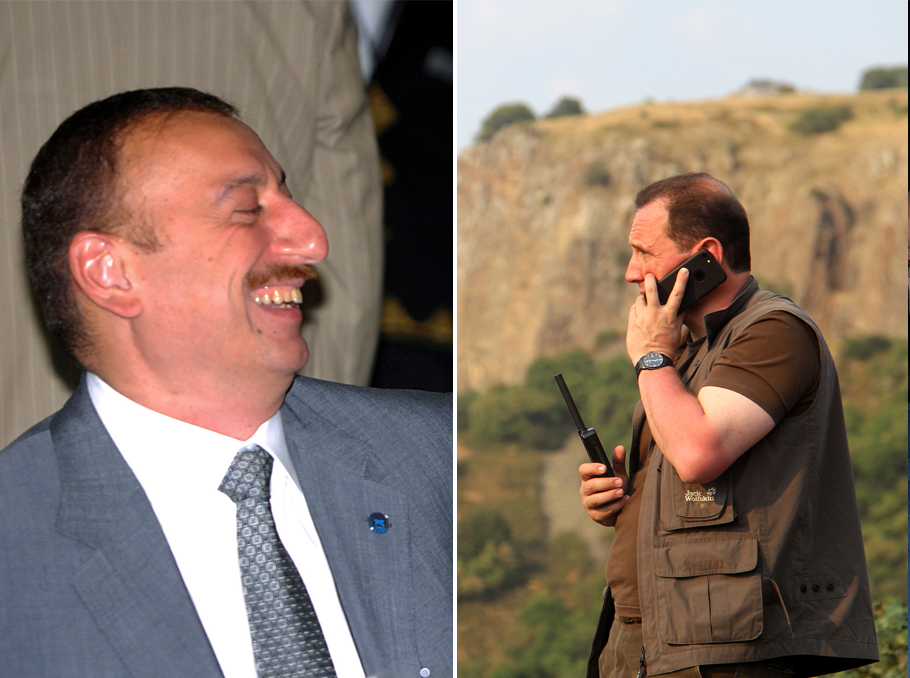





Comments
Dear visitors, You can place your opinion on the material using your Facebook account. Please, be polite and follow our simple rules: you are not allowed to make off - topic comments, place advertisements, use abusive and filthy language. The editorial staff reserves the right to moderate and delete comments in case of breach of the rules.